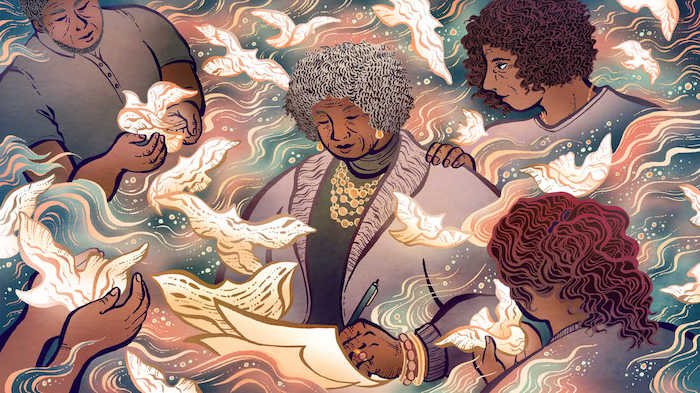— Should Young Adults Be Included?

Talking about one’s end of life wishes is typically uncomfortable for most. We think of the subject as one for our aging parents to have with us when they are “old”. We don’t usually think it is a necessary subject for younger adults to know about. The truth is, many younger adults are already caregivers and they must deal with these issues.
A real life example is that of Anna, a bright and ambitious teenager when her father had to retire from work on disability. Three years later, he passed away. Anna was an only child, living with her mom. The last thing anyone expected was for her mother to have a health issue.
Anna’s mother, Linda had already retired from teaching at a university. She had a pension and some income from rental real estate. She was working part time in the field of education. At only age 59, Linda began to show signs of memory loss. She was diagnosed with early onset dementia and had to stop working. Anna and Linda lived on Linda’s income. Linda’s dementia progressed. At age 21, just graduating from college and starting her career, Anna became the agent and power of attorney for her mother. Eventually Anna had to sell the family home to pay for her mother’s care. Over time, Linda became a behavior problem and Anna had to place her in a care home. Eventually Anna had to sell off her mother’s invested assets to pay for Linda’s increasing care needs. When the money ran out, Linda qualified for Medicaid but then the choices of care for her were extremely limited. Anna found a low cost board-and-care home for Linda two hours away. It took Anna half a day just to make a visit.
Anna was faced with every decision about her mother all on her own. She got advice from time to time at AgingParents.com but it was a huge burden to manage all this while getting her first jobs and establishing her own career. When end of life decisions had to be made Anna did her best to honor what she thought her mom would want. Linda had not ever talked about her end of life wishes with her young daughter. It was a heavy burden on Anna. When the doctors asked her what she wanted to do at decision time for Linda, she was in tears. She guessed, without being sure and it was emotionally wrenching for her.
The Takeaways
None of us are guaranteed a long retirement with our health intact. None of us need let our family members down by failure to discuss what we want in our last days. The struggle to figure out all the things Anna had to do for her mother was an extremely stressful burden. We owe it to our offspring, or others who would have responsibility to assist us in declining health, to be clear about what we want. We use Advance Healthcare Directives, also called Healthcare Proxies or Power of Attorney for Healthcare to give written instructions to our loved ones. That makes it much easier on them when the time comes. When Linda could no longer say what she wanted, due to Alzheimer’s disease, Anna had to try to imagine what Linda would want. The process was traumatic. She did well regardless, and went on years later to have a family of her own. Hard as it is, she will not repeat her mother’s lack of discussion on this important topic with her own child.
If there is one thing to take from this true story, some of which I witnessed personally, it is that any young adult deserves to know the wishes of an aging parent or any parent with a health issue. Linda could have done that upon becoming widowed. There is a free, downloadable version of an Advanced Healthcare Directive available on the internet, from your doctor’s office or your nearest hospital. If any part of it is unclear, a conversation about it with a medical professional can help.
Above all, fill it out and sign it as the document requires, with either a notary or witnesses. With this simple step, you are saving your younger loved ones from conflicts and distress about what to do near the end of your life. And equally as important, take the document out and show it to every adult in your family who will be appointed to carry out your wishes. Make it easier on them at a possibly difficult time. It’s the responsible and caring thing to do. If you need some help, free guides are available at The Conversation Project to get you started.
Complete Article ↪HERE↩!
